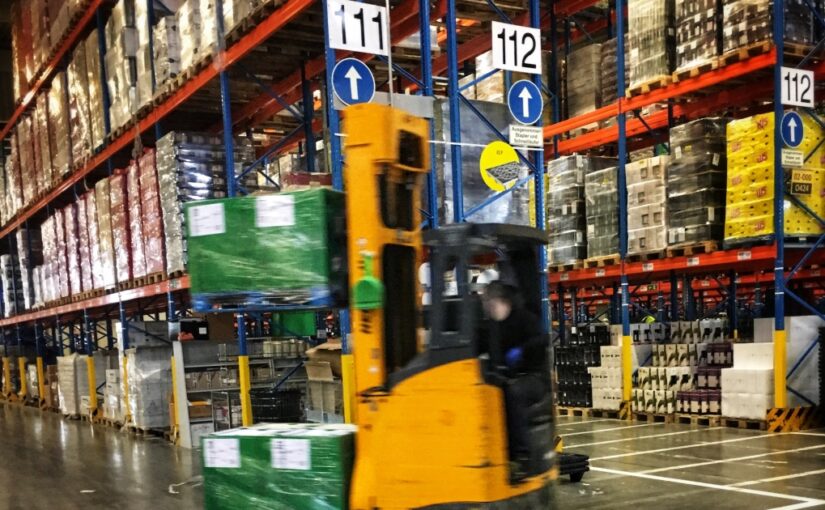Reading Time: 4 minutes
Maximize Your Recovery: Securing Fair Compensation for Transportation Injuries
If you’ve been injured while on the job, you may be entitled to compensation for your injuries. Transportation injuries can be especially debilitating, and they can have a significant impact on your life. In this article, we’ll explore the steps you can take to maximize your recovery and secure fair compensation for your transportation injury.
Introduction: Understanding Transportation Injuries
Transportation injuries can include a wide range of accidents, such as car accidents, truck accidents, motorcycle accidents, and more. These injuries can have a significant impact on your life, and they can result in lost wages, medical bills, and other expenses. It’s important to understand the common types of transportation injuries and how they can impact your life.
Common Types of Transportation Injuries
- Whiplash
- Broken bones
- Spinal cord injuries
- Traumatic brain injuries
- Burns
- Cuts and bruises
Impact on Your Life
- Lost wages
- Medical bills
- Pain and suffering
- Emotional distress
- Loss of quality of life
Importance of Seeking Fair Compensation
Seeking fair compensation for your transportation injury is crucial to ensuring that you have the financial resources you need to recover. Without fair compensation, you may be left struggling to pay for medical bills and other expenses, and you may not be able to fully recover from your injuries.
The Importance of Taking Immediate Action
If you’ve been injured in a transportation accident, it’s important to take immediate action to protect your rights and secure fair compensation. Here are some steps you should take following a transportation injury:
Report the Accident
Report the accident to your employer and the appropriate authorities as soon as possible. This will help establish a timeline for your claim and ensure that there is a record of the accident.
Get Medical Treatment
Get medical treatment for your injuries as soon as possible. This will help establish the extent of your injuries and ensure that you are receiving the appropriate treatment.
Document the Accident
Document the accident by taking photos and gathering witness statements. This will help support your claim and establish the facts of the accident.
Contact a Lawyer
Contact a lawyer who specializes in transportation injuries. A lawyer can help protect your rights and ensure that you receive fair compensation for your injuries.
Finding the Right Legal Representation
Finding the right legal representation is crucial to maximizing your recovery and securing fair compensation for your transportation injury. Here are some things to look for in a lawyer:
Experience
Look for a lawyer who has experience handling transportation injury cases. This will ensure that they understand the unique challenges of these cases and can provide you with the best possible representation.
Reputation
Look for a lawyer with a reputation for success. This will ensure that they have a track record of securing fair compensation for their clients.
Communication
Look for a lawyer who communicates effectively and clearly. This will ensure that you are kept informed throughout the process and understand your options.
Negotiating with Insurance Companies
Negotiating with insurance companies can be challenging, but it’s an important part of securing fair compensation for your transportation injury. Here are some common tactics used by insurance companies and how to counter them:
Lowball Offers
Insurance companies may offer you a lowball settlement in an attempt to save money. A lawyer can help you negotiate a fair settlement that reflects the full extent of your injuries.
Delaying Tactics
Insurance companies may delay the settlement process in an attempt to wear you down. A lawyer can help you push for a timely resolution and ensure that your rights are protected.
Litigating Your Transportation Injury Case
Litigating a transportation injury case can be complex, but it’s an important step in securing fair compensation for your injuries. Here’s what you need to know:
Role of Evidence
Evidence is crucial in a transportation injury case. Your lawyer will gather evidence to support your claim and establish the facts of the case.
Role of Witnesses
Witnesses can provide valuable testimony in a transportation injury case. Your lawyer will gather witness statements to support your claim.
Role of Expert Testimony
Expert testimony can be used to support your claim and establish the extent of your injuries. Your lawyer may call on medical experts or accident reconstruction specialists to provide testimony.
Maximizing Your Recovery: Damages and Compensation
There are several types of damages and compensation available for transportation injuries. Here’s what you need to know:
Economic Damages
Economic damages include things like lost wages, medical bills, and property damage. Your lawyer will work to ensure that you receive fair compensation for these expenses.
Non-Economic Damages
Non-economic damages include things like pain and suffering, emotional distress, and loss of quality of life. Your lawyer will work to ensure that you receive fair compensation for these losses.
Punitive Damages
Punitive damages may be awarded in cases where the at-fault party acted with gross negligence or malice. Your lawyer will work to ensure that you receive fair compensation for these damages if they are appropriate.
Working with Medical Professionals and Experts
Working with medical professionals and experts is crucial to your transportation injury case. Here’s why:
Medical Professionals
Medical professionals can provide valuable testimony about the extent of your injuries and the treatment you require. Your lawyer may call on medical experts to testify on your behalf.
Accident Reconstruction Specialists
Accident reconstruction specialists can help establish the cause of the accident and the extent of the damages. Your lawyer may call on these experts to provide testimony.
Navigating the Legal System: Tips and Strategies
Navigating the legal system can be challenging, but there are some tips and strategies that can help. Here’s what you need to know:
Key Deadlines
There are strict deadlines for filing a transportation injury claim. Your lawyer will ensure that you meet these deadlines and protect your rights.
Court Procedures
Your lawyer will guide you through the court procedures and ensure that you understand what to expect.
Important Considerations
There are several important considerations to keep in mind when pursuing a transportation injury claim. Your lawyer will help you navigate these considerations and ensure that you receive fair compensation for your injuries.
Conclusion: Securing Fair Compensation for Your Transportation Injury
If you’ve been injured in a transportation accident, it’s important to take immediate action to protect your rights and secure fair compensation. By working with a lawyer who specializes in transportation injuries, you can maximize your recovery and ensure that you have the financial resources you need to recover. Take control of your recovery today and contact a lawyer to get started.
Call to Action: Get Free Consulation with a local Lawyer 844–682‑0999.


